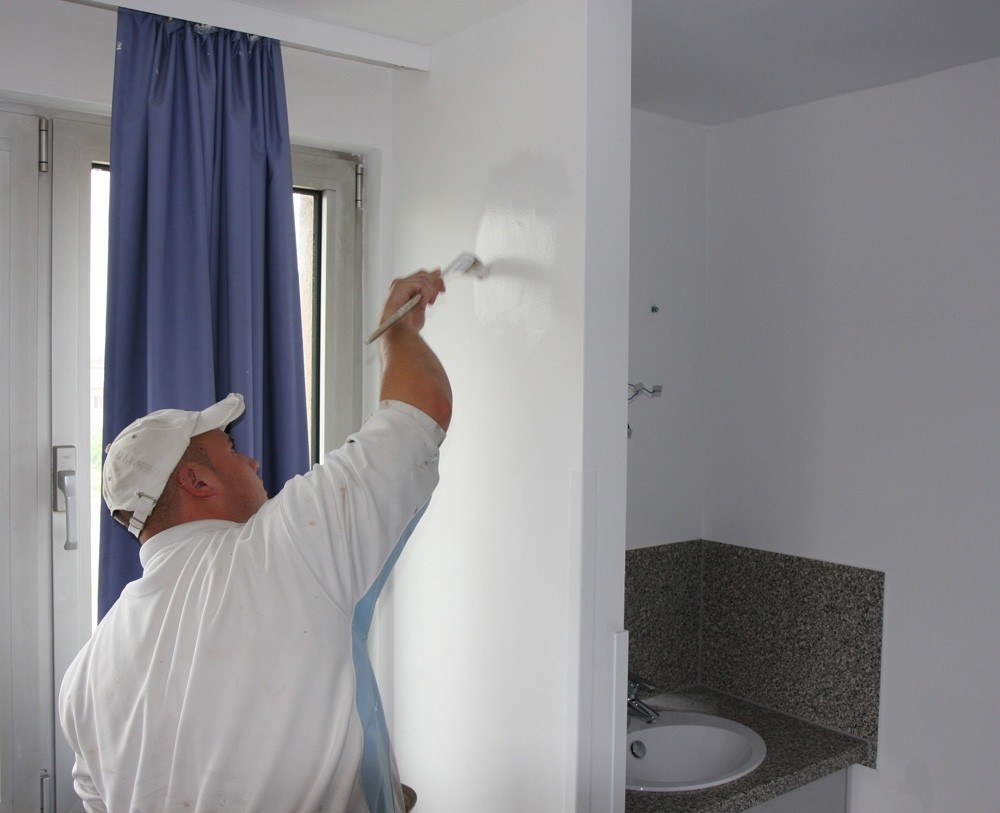WIESBADEN, Germany - While much news has been made of the transformation occurring in today's military, the U.S. Army Corps of Engineers is ensuring buildings and people that aren't undergoing front-page makeovers don't get left behind.
During the Wiesbaden-based 1st Armored Division's current deployment to Iraq, the nine barracks these warfighters call home are being renovated. It's an effort to ensure the quality of these returning Soldiers homes matches the sacrifice they're making for the nation.
Periodic barracks renovations are Army standard. Every four to five years, these building undergo a "patch-and-paint" refurbishing, which includes replacing any furniture that has become broken or damaged.
This time, officials say, the makeovers are more extreme, including brand new kitchens and a complete overhaul of the bathrooms.
"The buildings are comprised of office spaces and many living quarters for single Soldiers who share rooms and bathrooms," said Ed Kim, project engineer and construction representative for the U.S. Army Garrison Wiesbaden flagship projects. "I feel for the Soldiers."
The bathrooms come first.
Each bathroom is connected to two rooms, said Kim, with specialists and below bunking two to a room and noncommissioned officers getting their own. That means up to four people potentially share one shower - and during busy times like PT hours, the bathroom may become the first casualty of a barracks room.
Luckily, the renovations are quickly regenerating these depleted barracks.
"The contractors are very cooperative in achieving our goals," said Kim. "They understand what the customer, the end user, and the Corps of Engineers need. It has been excellent."
In addition to the new bathrooms, which include new toilets, showers, sinks, cabinets, and finishes, the "excellent" renovations include upgraded kitchens, sprinkler systems, suspended ceilings, and the standard spackle and paint.
Each building costs around 1 million euros and takes from 120 to 150 days, Kim said.
Troops still residing in the barracks slated to be renovated are moved to a pre- or post-renovated building while theirs is under the knife, Kim said. But, when the renovations finish, Soldiers - some new to the area - are moved in immediately.
"This is much better living conditions that what I had before," said Sgt. Anthony Cavella, who just moved to Wiesbaden from Darmstadt. "Its new renovations are a big change. I feel privileged to be in these new barracks."
Kim has first-hand experience with the war and keeps his mind on the Soldiers at all times.
"When you're down range, you're thinking about your car, your girlfriend or wife, your stuff, and your home. When they come back and see a brand new place with new paint and a new bathroom and kitchen, I think they will be very excited," said Kim who was deployed to Afghanistan as captain for U.S. Army Europe's 18th Engineer Brigade before his move to the Corps of Engineers.
"I was downrange, and the living conditions where pretty bad," Kim added. "When I came home, I was so happy to be back and I didn't even have a new paint job - so I think it is pretty good for their morale."
Not only do these projects lift the spirit of the troops, they are also encouraging to everyone involved.
"This directly helps those downrange fighting for our freedom," said Kim of his project. "You can be in the private sector building homes or apartments, but the job we are doing now is very important because it supports our troops and does something for our nation. For all of us working for the Soldiers, we should take great pride in that and feel privileged in what we are doing."




Social Sharing